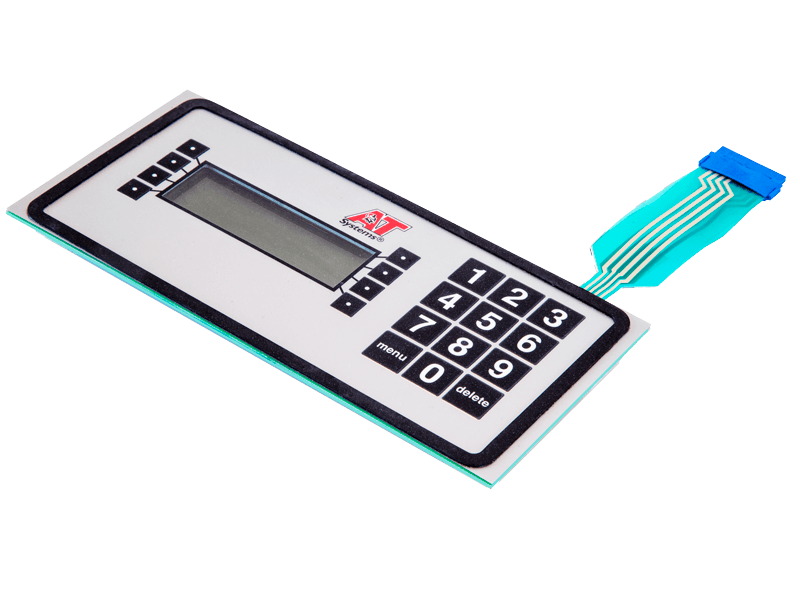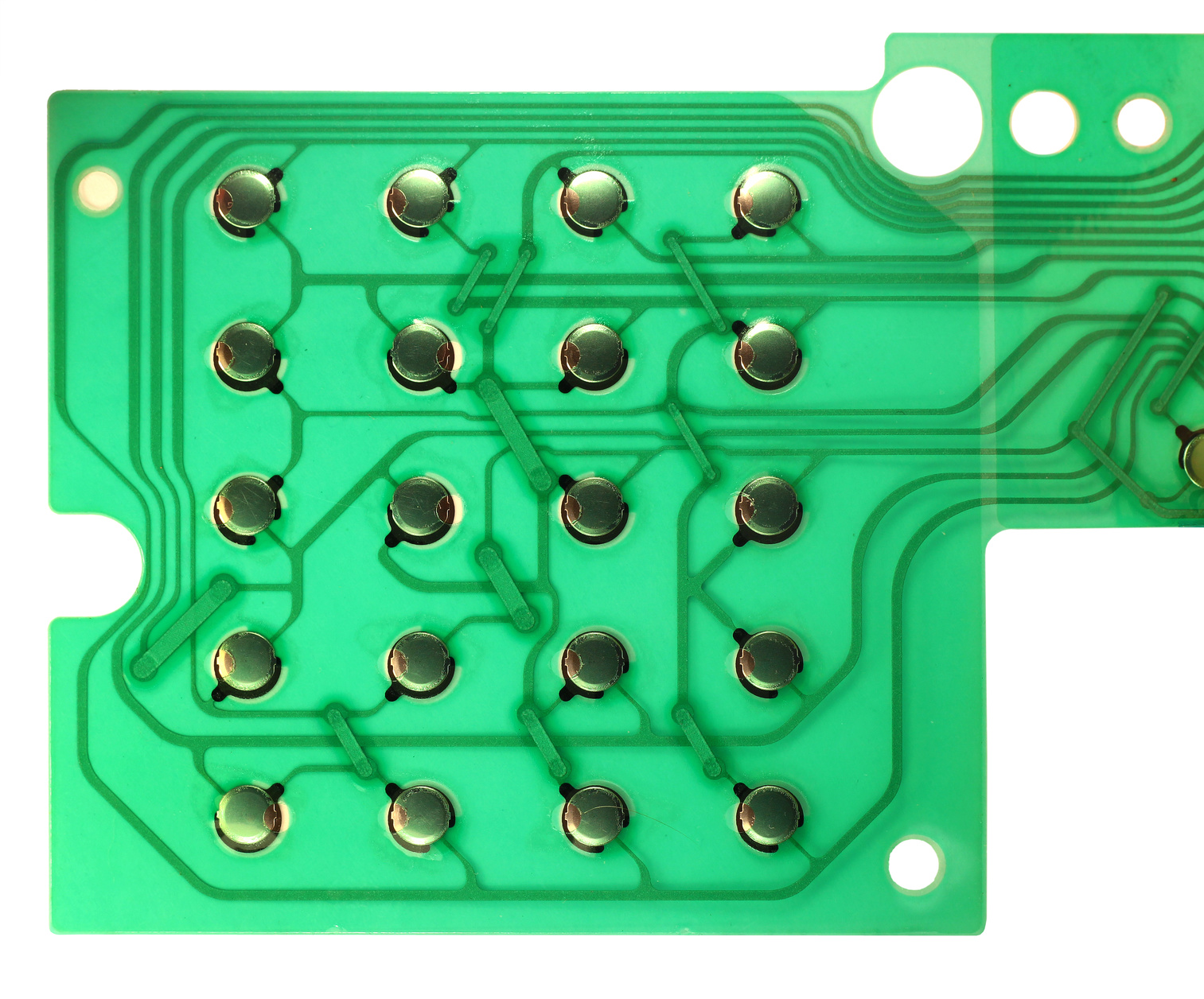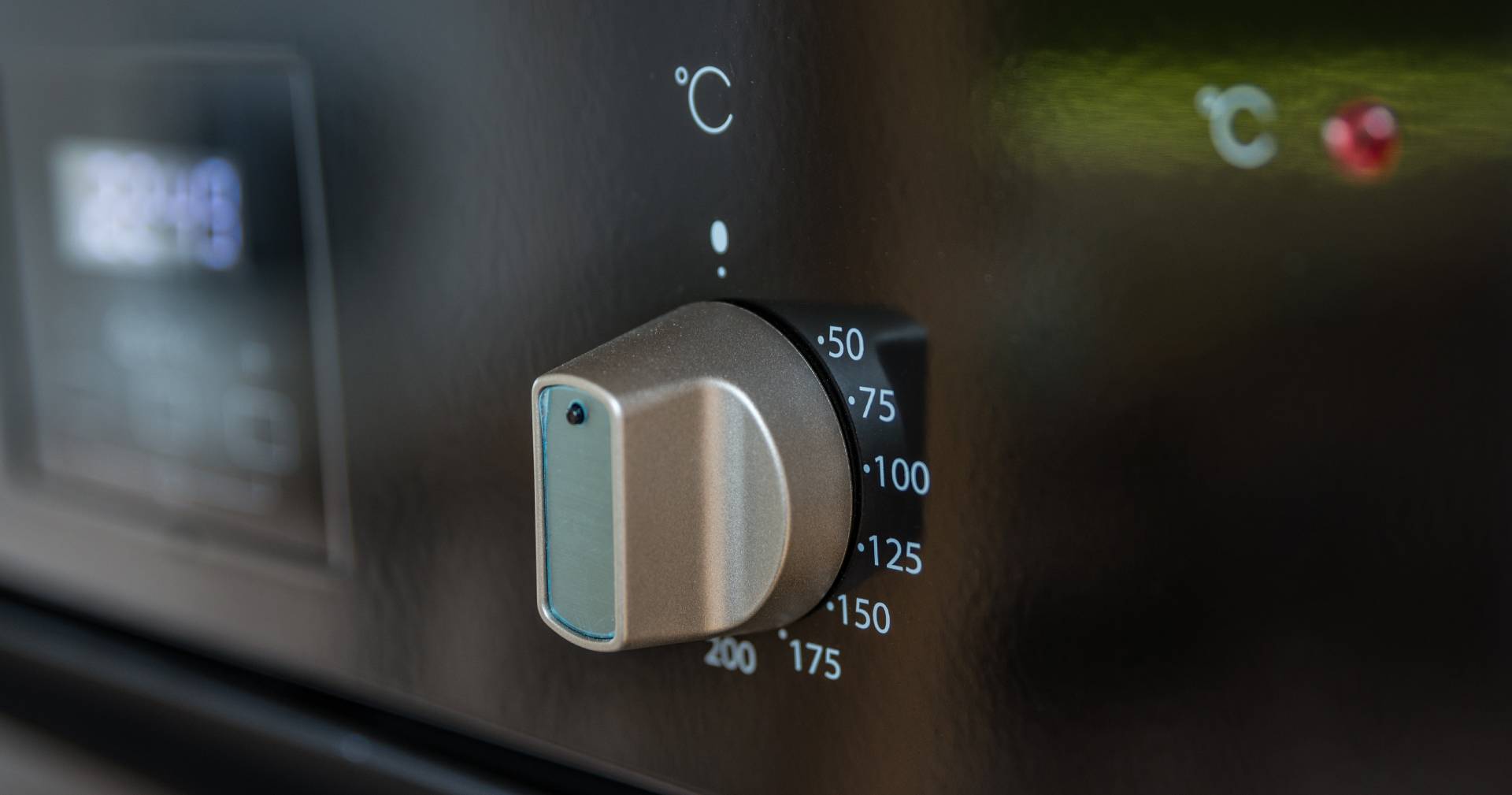Membrane Switches: A Cost-Effective Solution for Product Interfaces
Membrane Switches: A Cost-Effective Solution for Product Interfaces
Blog Article
Comprehending the Importance of Membrane Switches in Customer User Interfaces
Membrane switches are indispensable components in the layout of reliable individual interfaces, promoting not just capability however additionally enhancing aesthetic appeal and user interaction. Their unique features, such as resistance to environmental factors and customizable layouts, make them appropriate for a diverse selection of applications across multiple sectors. As we check out the numerous advantages and future trends linked with Membrane innovation, it comes to be clear that these buttons are a lot more than simply components; they stand for a convergence of innovation and functionality. The implications of this innovation on individual experience deserve examining further.
What Are Membrane Switches?

The spacer layer, which consists of sticky residential properties, permits for the separation of the circuit layer from the overlay, making sure that the switch stays in a non-activated state till pushed. When pressure is related to the overlay, it compresses the spacer layer, connecting the space and finishing the circuit in the underlying layer. This style not only minimizes the physical area needed for typical mechanical switches but also boosts the toughness of the tool, as Membrane switches are usually immune to dust, moisture, and other ecological variables.
Commonly located in applications varying from customer electronics to clinical tools, Membrane buttons are essential to modern innovation, giving a efficient and easy to use user interface that lines up with contemporary design needs.
Benefits of Membrane Switches
While numerous button innovations exist, Membrane Switches deal distinctive benefits that make them particularly desirable in numerous applications. Among the key benefits of Membrane switches is their portable style, which enables space-saving applications in gadgets where realty is limited. Their slim account not just boosts aesthetic allure yet also facilitates light-weight building and construction.
Another substantial advantage is their resistance to ecological factors. Membrane buttons are usually sealed against wetness, dirt, and impurities, making them suitable for use popular atmospheres, such as medical tools and commercial equipment. This durability prolongs the life expectancy of the switch, lowering maintenance prices and boosting dependability.
Moreover, Membrane buttons can be personalized to meet certain style requirements, including one-of-a-kind graphics and shades that enhance individual communication. Their tactile comments choices can also be customized to supply an enjoyable customer experience. In addition, Membrane buttons are cost-effective, particularly in high-volume applications, as they can be produced effectively.
Applications in Various Industries

In the customer electronic devices industry, Membrane switches are common in tools such as microwaves, cleaning devices, and push-button controls. Their tactile responses and visual choices boost customer experience while providing a streamlined, modern-day look. In addition, auto producers make use of Membrane switches in control panel controls and infomercial systems, where room is restricted, and individual involvement is crucial.
In addition, the commercial market leverages Membrane switches in control panels for machinery and equipment, permitting instinctive operation in frequently harsh atmospheres. Their resistance to chemicals and dampness makes certain durability and reliability in these applications. On the whole, the flexibility of Membrane Switches adds dramatically to their widespread use, making them indispensable in various technical domains.
Style Considerations for Membrane Buttons

When developing Membrane switches, numerous vital factors to consider need to be considered to guarantee optimal functionality and individual experience. The choice of products is crucial; choosing durable, high-quality substrates can enhance the button's longevity and resistance to ecological aspects such as wetness and temperature level fluctuations.
Second of all, the layout of the visuals overlay ought to focus on clarity and simplicity of use. Symbols and message should be clear, and the format ought to facilitate instinctive interaction (membrane switches). Additionally, responsive feedback is necessary; including a responsive dome or other mechanisms can boost the user experience by offering physical verification of activation
Another important variable is the button's electric efficiency. Designers should make certain that the conductive traces are properly created to lessen resistance and avoid signal interference. This involves examining the required actuation force and making sure compatibility with the digital elements they will user interface with.

Future Fads in Membrane Modern Technology
As technology remains to breakthrough, Membrane buttons are positioned to develop dramatically, driven by developments in materials and making strategies. One arising trend is the unification of innovative materials, such as conductive inks and adaptable substratums, which boost longevity and reduce the general weight of Membrane buttons. These products not only boost the tactile action yet also allow for the style of switches that can stand up to harsher ecological problems.
Furthermore, the combination of touch-sensitive technologies is transforming traditional Membrane Switches right into more interactive individual interfaces. Capacitive touch sensors embedded within Membrane switch panels can give a more user-friendly and responsive user experience, straightening with the expanding need for sleek, modern-day styles in customer electronics.
Furthermore, advancements in printing techniques, such as digital and 3D printing, allow fast prototyping and modification of Clicking Here Membrane buttons. This flexibility allows producers to react faster to market demands and customer choices.
Lastly, sustainability is coming to be a considerable focus, with suppliers exploring green products and processes. As these fads unfold, the future of Membrane innovation guarantees improved capability, visual allure, and ecological obligation, strengthening their duty in advanced user interfaces across numerous markets.
Final Thought
In verdict, Membrane Switches stand for an essential part in the design of customer interfaces, combining performance with visual versatility. As advancements in modern technology proceed, the advancement of Membrane switches is expected to further refine individual interfaces, driving development and enhancing usability in an increasingly intricate technical landscape.
Membrane buttons from this source are integral components in the style of reliable user interfaces, assisting in not only functionality but likewise boosting aesthetic appeal and customer interaction.Membrane Switches offer as a vital element in various customer interfaces, facilitating a seamless communication between users and digital gadgets.While numerous button innovations exist, Membrane hop over to here Switches offer distinctive advantages that make them especially preferable in different applications.In addition, Membrane switches can be tailored to fulfill certain layout demands, integrating one-of-a-kind graphics and shades that enhance individual communication.In conclusion, Membrane Switches represent a vital component in the style of user interfaces, integrating capability with visual adaptability.
Report this page